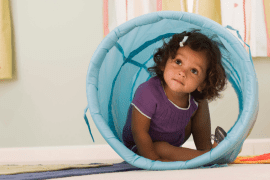By Israel Butson
If your home is anything like ours, your exhausted kids announce their arrival home from school with a jacket in your face, a pair of shoes flung across the room, and a backpack through a window. Stuff, tears and minor lacerations all over the show.
A normal day.
But then you spot the white corner of a school notice sticking from a school bag, and suddenly it’s not just a normal day. Parent-teacher interview times have been arranged. Your cheeks flush. Beads of sweat form above your eyes. Terror fills your heart, but you fight back control over dropping into the fetal position in front of your kids [again].
Maybe your children are angels and you don’t sweat the teacher catchups. Lucky you. But our most recent parent-teacher chat has become a catalyst for re-considering the way we view our children’s education and, in fact, lives – and in 10 more days, we’ll be excusing them from school permanently.
Hey School – It’s Not Me, It’s You
For us, parent-teacher interviews have always been a game of two halves. One spent basking in glowing reports of our eldest child, who excels in the schooling paradigm, the other being scolded, coached and generally grumped at by the teacher of our second child, who is a wonderful, bright, energetic boy but an absolutely awful match for school.
Across three schools, five teachers, and two countries, the results have been the same – for both kids – every time. One is always a joy, the other a problem. Too noisy, lacking focus, a distraction to others, doesn’t listen, can’t keep up…immature.
For a long time we tried to shape our son to fit. To “fix” him. We took on board feedback from various teachers. We demanded immediate obedience. We clamped down on anything too physical inside our home. We relentlessly shushed his noise. We pushed him to practice his writing, his school reading books, to complete his homework each night. We tried to create an environment of quiet obedience.
Our home adopted the paradigm of a classroom, us the teachers. No learning was happening, though – just a whole lot of attempted behaviour shaping, arguments, frustration, timeouts, tears (from us as much as him)…it was exhausting. We saw exactly what his teacher was seeing – both in his behaviour, and the impact it was having on those around him. We doubled down on demanding obedience, trusting that we’d “crack” the behaviour eventually.
And we watched him disintegrate.
He came home one day, burst into tears on his bedroom floor, and shouted over and over that he “hated himself at school”.
After the shock of hearing those words from our 7-year-old child had subsided, with the help of a bottle of red wine that evening, we reflected on his words.
Hated himself…at school. He knew what was required of him in that environment, knew he was failing to live up to the standards, knew he couldn’t be himself. And because we were trying to set those same standards at home as well, with more and more desperation, he had no release. Our precious 7-year-old boy had that tension between who he was and who others were asking him to be sitting squarely on his shoulders, and it was crushing him.
He clearly saw and understood what his teachers, principals and – for shame – his parents hadn’t:
To make it through school successfully he’d have to become someone he wasn’t. He’d need to chop off some edges so he’d fit in the hole.
And so we realised our son wasn’t a problem to be fixed, to be changed. The problem was the classroom, and it was suddenly so obvious that the solution was to just stop going. He would never be comfortable in a quiet, obedience-oriented, mostly sedentary environment for six and a half hours a day, five days a week, for 13 years. He was screaming inside and had no idea how to express it.
See next page for more…











